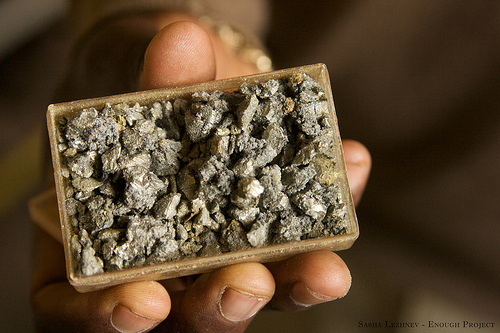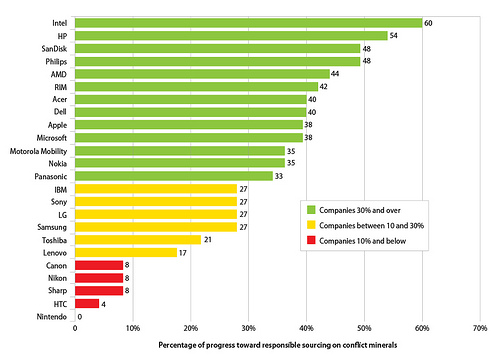iPhone 5 Hype Perpetuates Human Rights Violations
There has been a humanitarian crisis going on in the Democratic Republic of the Congo (DRC) for the past 16 years. Though not technically classified as genocide, the death toll of the “crisis” is the worst since World War II: 5.5 million have died, and 7,000 were raped in 2009 alone.

These conflict minerals are not used for jewelry making, or anything of the sort. Instead, they are used to manufacture computers, smartphones, cameras and many other electronics devices we use on a daily basis. Since these minerals are in such high demand by consumers, electronics companies buy them in large quantities; meaning, the pay-offs for controlling the mines in the DRC reach hundreds of millions of U.S. dollars.
In America and many other countries, public schools’ curricula have requirements for students to learn about the Holocaust. The primary reason for this education is, supposedly, so that something like it will never happen again. However, in the 67 years since the Holocaust, something like that has happened, and it is happening today. Is there something wrong with our education system? Have we missed a crucial step in learning about yesterday’s atrocities to avoid tomorrow’s? At some point along the way, this education has clearly become ineffectual.
The crucial difference between the Holocaust and this crisis, however, is that the Holocaust was racially motivated; this crisis is about economics. Instead of intense anti-Semitism driving a war and genocide, this conflict is about the latest iPhone, the newest computers and point-and-shoot cameras.

In 2005, the UN called this conflict the greatest humanitarian crisis since World War II. The violence, rape and displacement have been going on for another seven years since. Among many others, a movement called the Enough Project is vying for companies to investigate the source of their supplies of minerals, to see if they are perpetuating the conflict in the Congo. The Enough Project advocates for corperate accountabliity, and has informational campaigns regarding these issues.
The release of the iPhone 5 caused an all time high in Apple’s stock, and the demand for the new smartphone has broken a record of all time sales for the company. It seems as though the demand in developed countries for conflict minerals is not decreasing at any rate. The electronics companies involved here—not just Apple—have made the call that their sales are, for the moment, more important than solving this crisis.
However, the news is not all bad: Apple has grown 25 percent in the last two years in terms of its awareness and investigation of its supply lines for these minerals, along with many other companies.
In a struggling economy, however, these companies must make tough calls when demand is so high. The resulting question is: when it will the situation in Congo be dire enough to warrant more action?
Reach Contributor Jonathan Stoller-Schoff here.



